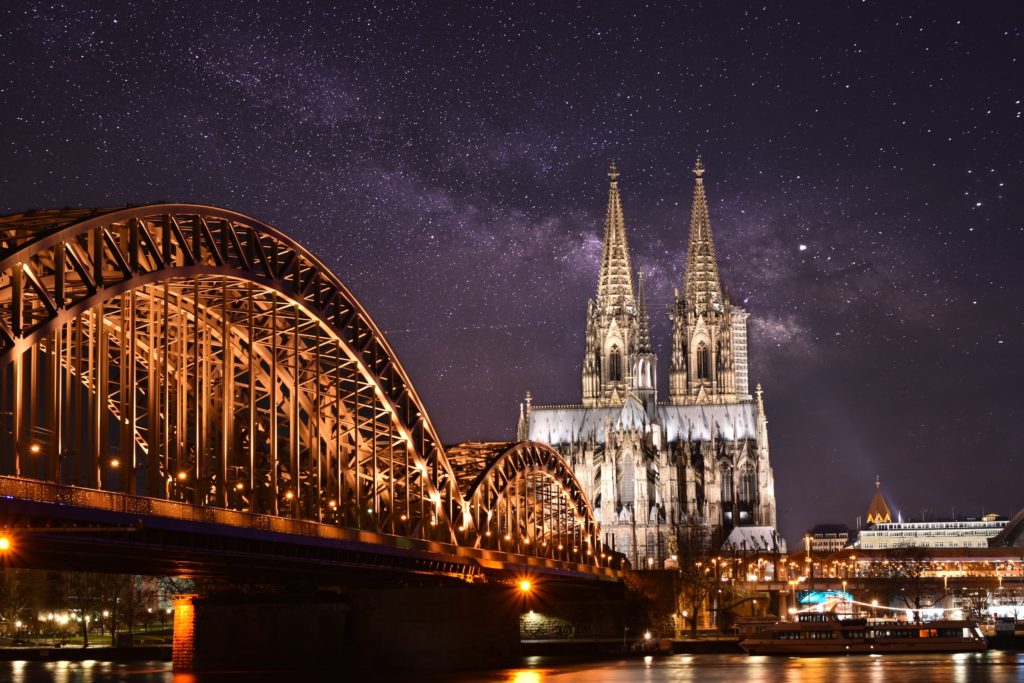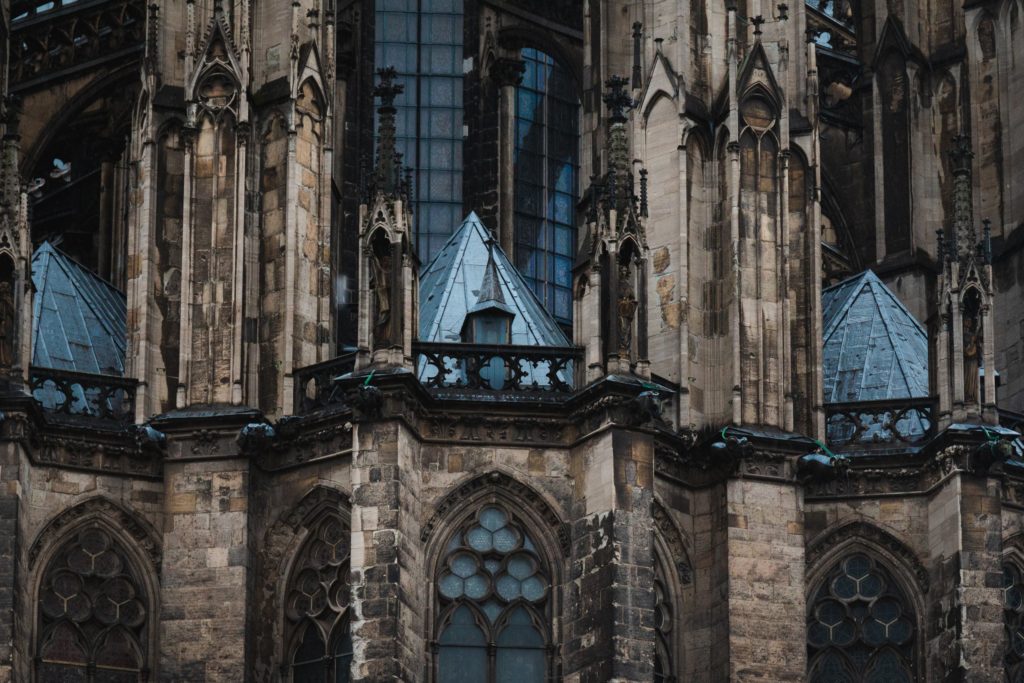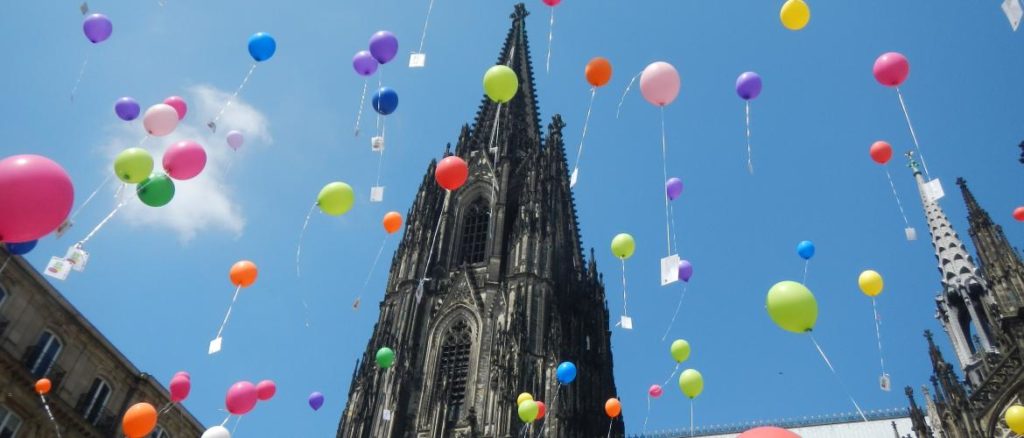Cologne

Description of the city
With a population of just over one million people Cologne (German name: Köln) is the largest city in the German federal state of North Rhine-Westphalia and the fourth-largest city in Germany (after Berlin, Hamburg, and Munich). The city, which was founded almost 2000 years ago by the Romans, is situated in the Rhineland region in the west of Germany. Cologne is famous for its Cathedral (Kölner Dom), numerous romanic churches, the Cologne Carnival, the Cologne Trade Fair (koelnmesse), its university (Universität zu Köln), its beer (Kölsch), its Christmas markets and – last but not least – for its annual gay pride event, the Christopher Street Day (CSD). Every year, on the first weekend of July, over half a million people celebrate, demonstrate or watch the CSD parade in the city center.
Goal
In order to increase the political representation of the interests of the LGBT community, the Cologne City Council established an LGBT Advisory Committee/City Consortium (“StadtAG LST”) in 2006. Since 2010 the City of Cologne also has an LGBT Office, which is part of the Diversity Unit within the Department for Social Affairs. Currently, the LGBT Office is staffed with one full-time and one part-time position. Its main goal is to fight against discrimination and to recognise, support and benefit from the diversity of the people that live here.


Focus areas
The main tasks of the LGBT Office are:
- to represent the interests of the LGBT people inside and outside the city administration
- to mediate between politics, the city administration and the LGBT community
- to organise and support public events against homo- and trans*phobia
- to maintain an exchange with other LGBT offices on a regional, national and international level
- to administer the LGBT Advisory Committee/City Consortium and implement its decisions
The LGBT Advisory Committee/City Consortium has an advisory function towards related council committees. It meets about four times annually and consists of:
- nominated representatives (with voting rights) from nine NGOs of the LGBT community in Cologne
- members of the political parties that are elected into the Cologne City Council
- members of the Cologne city administration (related to the topics of the agenda)
The agenda of the LGBT Advisory Committee/City Consortium focuses on a broad range of LGBT related issues. For example, more recently this has included:
- to develop a local action plan against homo- and trans*phobia;
- to organize suitable accommodation for LGBT refugees
- to increase lesbian visibility in Cologne
- to administer a study about the city’s LGBT community as an economic location factor for Cologne
- to invite representatives of the partner cities of Cologne (e.g. Tel Aviv/Israel, Istanbul/Turkey, Katowice/Poland) in order to improve the international exchange, to learn from each other and to support LGBT groups in these partner cities
Collaboration partners
Current LGBT representatives in the LGBT Advisory Committee/City Consortium:
- SC Janus (LGBT sports club) www.sc-janus.de/
- rubicon (advisory and counselling center for LGBT, their friends and family) www.rubicon-koeln.de
- anyway (youth center for young LGBT and their friends, aged 12-25) www.anyway-koeln.de
- KLuST (organiser of the CSD / Cologne Pride event) www.colognepride.de
- Aidshilfe Köln (Cologne AIDS foundation) www.aidshilfe-koeln.de
- Rheinfetisch Köln (gay fetish organisation) www.rheinfetisch.de
- Völklinger Kreis (network of gay managers and business owners) www.vk-online.de
- TX Köln (support group for trans* people) www.txkoeln.de
- LSVD Köln (organisation for LGBT rights) www.lsvd-koeln.de
- Schützenverein St. Sebastianus und Afra (traditional gay and lesbian shooting club) www.sebastianus-und-afra-koeln.de
- Homoklüngel Köln,(gay and lesbian business network) www.homokluengel.com
In addition, there is close cooperation with other NGOs like the Cologne center for gay history (Centrum Schwule Geschichte www.csgkoeln.org ), the organisers of the Cologne Dyke March (www.dykemarchcologne.de ) and different volunteer groups that support LGBT refugees such as Rainbow Refugees Cologne (www.rainbow-refugees.cologne)
A more comprehensive list of our collaboration partners, including their websites can be found here.
Other collaboration partners
In 2014, a network of LGBT offices of cities within the state of North Rhine-Westphalia was founded in cooperation with the Ministry of Emancipation. In 2015, a network of LGBT offices was founded across Germany. The city of Cologne is a member of the “Charta der Vielfalt” (Charta of Diversity).
